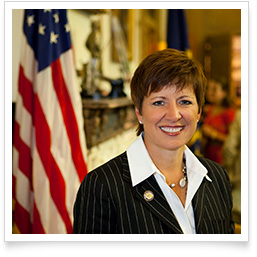Balancing work, family and life is challenging – throwing in a full-time, or even part-time, education on top can seem near impossible.
One thing that can ease the struggle of pursuing a degree as a working adult? Employer tuition support.
Employers that provide tuition support are making a long-term investment in their employees, and employees take that investment to heart. I learned that recently when speaking with several people for the March/April edition of BizVoice® about their experiences with tuition support and the benefits of attaining those advanced degrees through WGU Indiana.
(You can read that story in our new edition here.)
All of those interviewed couldn’t speak more highly of the impact of knowing their employer is actively supporting them. The return on investment for those companies yields people that are devoted to the organization, on top of the more tangible benefits of skilled and educated employees.

Dan Minnick
One of the WGU Indiana graduates featured in the story is Dan Minnick, a nursing professional development educator at IU Health Ball Memorial Hospital in Muncie. I asked representatives from IU Health to provide more information on their tuition support program.
An abridged Q&A via email with Lauren Zink, vice president of Total Rewards and Shared Services at IU Health, follows:
BV: What is the benefit to IU Health as an employer when its team members have finished their degrees or have completed advanced degrees?
LZ: “Our goal at IU Health is to provide long-term career opportunities for our team members. We have a wide variety of jobs and a continuous need to fill them with dedicated, talented individuals. As our team members obtain the education they need to qualify and apply for new positions, it allows IU Health to retain them as valued team members and provides them with the opportunities to advance their careers. This mutually beneficial partnership leads to stronger employee engagement and retention, and that too is a very important priority at IU Health.”
BV: What would you say to employers who aren’t currently supporting team members with tuition support? How has this been beneficial for your organization?
LZ: “We understand that most organizations have many competing priorities and limited dollars to invest. However, the return on this investment is one that can be tracked and measured, and has a significant positive impact on the culture. When we invest in our most valuable asset, our people, we build a sustainable workforce that can grow with the organization. It also sends a very positive message to job seekers that their ongoing career development will be a priority at IU Health.”
BV: What do you tell your team members who aren’t sure if they want to go back to school?
LZ: “Education requires a time, energy and resource commitment. Only an individual can truly discern if they are ready to embark on this journey, and if they are, we are there to support them.”


 The following post by WGU Indiana Chancellor Allison Barber was originally published on the
The following post by WGU Indiana Chancellor Allison Barber was originally published on the